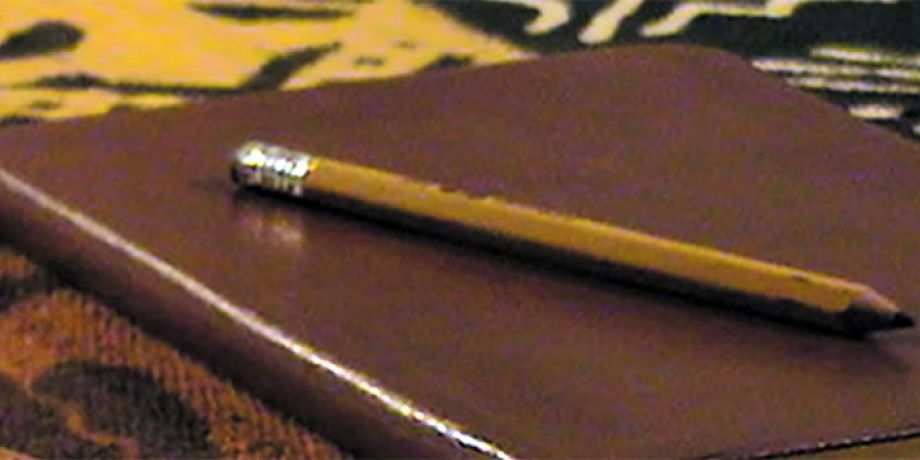
I have been studying the Fijian language for almost three months now. It is great to have a chance now to learn the Fijian language and culture after spending three years working with the Hindi language and Indian culture. It has been decided that I should spend Holy Week helping a Marist priest, F. Seamus McMahon, at Naililili Parish.
 Just before I started my Fijian course, I did a 15 minute Hindi interview with Thomas Ambika Nand for Radio Fiji. He also recorded me playing the baja (harmonium) while singing a Hindi hymn. I never found out when the program would be broadcast. I actually forgot about it.
Just before I started my Fijian course, I did a 15 minute Hindi interview with Thomas Ambika Nand for Radio Fiji. He also recorded me playing the baja (harmonium) while singing a Hindi hymn. I never found out when the program would be broadcast. I actually forgot about it.
Fr. McMahon had lined up a full program for Holy Week. Monday evening was for married couples to renew their vows. The anointing of the sick and elderly took place on Tuesday. Tonight, Wednesday evening, we both heard confessions for hours. These were my first confessions in Fijian, and I didn’t understand all that was said to me. One lady told a very sad story, shedding copious tears. I was embarrassed at not understanding the problem and I had very little in the way of comfort or advice to offer.
After that “baptism by fire,” I joined Fr. Seamus in the presbytery for a cup of tea. I absent mindedly switched on the radio – just in time to hear myself singing the Hindi hymn I had recorded three months previously. I turned to Fr. Seamus and asked him if he knew who was singing. He said that he had no idea. “But, you actually know this singer,” I said to him. He listened again for a few moments and said, “All those Indian singers sound the same to me!” I laughed.
Resolving an Elopement Issue.
I have been living in Nacamaki village on Koro Island for two months now, after finishing my language course, to gain fluency in the Fijian language. I have been accepted as an honorary member of the Manukira clan. This evening I attended a gathering of clan members in the village as they tried to collect ten whale teeth1. A clan youth had eloped with a girl from the neighboring village some time ago. A deputation of clan elders is to visit that village soon to offer their traditional apology for the offense. Ten whale teeth are required for this ritual apology.
The whale teeth arrived slowly one by one, brought by clan members who either possessed one or had been able to borrow one. The yaqona2 in the large bowl in the center of the room was stirred up at regular intervals and shared around to all. Eventually the magic number was reached. The ten whale teeth lay in a bundle.
The clan chief, an elderly man, then gave a lecture to the culprit who was sitting quietly among his friends. “You see how much trouble and expense we have gone to for your sake tonight,” he said. “You had better look after that girl. If we hear that you have mistreated her, we will all be very upset. We don’t want the good name of our clan spoiled any further and we don’t want any more trouble with our neighboring village.”
Then, as the culprit looked suitably contrite and humble, someone shouted from the back of the group, ”And you youths, if any of the rest of you want to elope with a girl, will you please find an Indian girl who is willing!”3
A Smart Intermediary
An intermediary (who links the chief with his people) has an important place in Fijian culture. In the Indo-Fijian culture too, if a problem between two important men is causing trouble to others in the community, one or two intermediaries may be called on. They talk to both parties separately and put pressure on them to reconcile. But today I realized that even European priests and a local community can be helped by a suitable intermediary.
My informant told me that he had attended a meeting of the church committee that went on for most of the day. Some of the Indo-Fijian committee members where quite strong in their views about different matters and they seemed to have annoyed Fr. Theo. One of their leaders put a key question to Fr. Theo and they all sat up attentively waiting for his answer. But Fr. Theo said nothing. No answer was forthcoming. He remained silent for a long time.
One of the younger community leaders, who was a big support to the priest, noticed that though Fr. Theo was silent the toes of both his feet were wiggling. The lay leader read this as a sign of great frustration and perhaps anger. So he turned to the questioner and said, “Fr. Theo will think about that question and will give you an answer later!”
Columban Fr. Frank Hoare lives and works in Fiji.
1 The whale’s tooth is the most precious symbol in Fijian tradition and culture.
2 Yaqona or kava is a traditional ritual and social non-alcoholic drink made from a species of pepper plant.
3 The point of this comment is that since the presentation of whale teeth is a Fijian custom only, they would not have to be presented to the family of an eloped Indian girl.